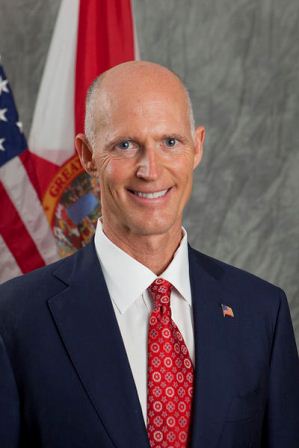 |
(CNN) -- Florida's Republican-appointed secretary of state issued a tough rebuke to the United States Justice Department late Wednesday, writing his state's effort to remove non-U.S. citizens from voter rolls was both consistent with federal law and necessary to protect against fraud.
Ken Detzner, appointed to his post by Republican Gov. Rick Scott, was responding to Justice Department questions about the legality of the voter roll "purge," which comes five months ahead of a presidential election in which swing state Florida, with its 29 electoral votes, will play an influential role. In defending his state's decision, Detzner slammed the federal government for restricting access to federal citizenship databases, saying such a constraint was illegal.
"It is an unfortunate but now undeniable fact that Florida' s voter rolls include individuals who are not citizens of the United States. The Florida Department of State has a solemn obligation to ensure the integrity of elections in this State," Detzner wrote in the letter addressed to T. Christian Herren, head of the Justice Department's elections unit.
Detzner continued, "The Department of State respectfully disagrees with DOJ's position. The actions taken by Florida to identify and remove non-citizens from its voter rolls ensure that the right to vote of citizens is protected and is not diluted by the votes of ineligible persons."
Florida's move to remove non-eligible voters from its voter lists began after Scott, the state's Republican governor, pressed Florida's elections officials to identify non-U.S. citizens who had registered to vote illegally. Using information from the state's Department of Highway Safety and Motor Vehicles, the state identified more than 100,000 names of non-eligible voters that could potentially be on the lists illegally.
Critics say the plan unfairly targets minorities, and paint it as an attempt to dissuade typically Democratic voters from going to the polls.
The Department of Justice wrote in a letter last week that Florida failed to properly notify the federal government of their decision, writing the unilateral move violated provisions of the Voting Rights Act of 1965.
Five counties in Florida are covered by the Voting Rights Act, a landmark piece of legislation that gives the federal government open-ended oversight of states and localities with a history of voter discrimination. Any changes in voting laws and procedures in the covered states must be "pre-cleared" with Washington.
Florida's three largest counties -- Miami-Dade, Broward, and Palm Beach -- all said earlier this week they had either stopped the removal of names from their voter lists or had never begun the process. The legal counsel for Florida's county election officials recommended halting the purge of names until the state responded to the federal government. That office has yet to issue an updated recommendation.
In its letter, the Justice Department also said the move appeared to violate a provision that prevents states from removing voters from rolls less than 90 days ahead of an election. Florida will hold a primary vote on August 14.
In his letter Wednesday, Detzner took issue with the Justice Department's legal assessment, saying his state's decision was fully consistent with federal law.
"The State of Florida is not a covered jurisdiction subject to the preclearance requirements of Section 5 of the Voting Rights Act," Detzner wrote. "As for the role of the supervisors of elections in Florida's five covered counties, they are simply administering a law that the Department of Justice has duly precleared."
The timing of the move is also legal, Detzner argued, claiming the federal provision against removing names from rolls only applies to people who were once eligible to vote but, through death or criminal conviction, had become ineligible.
"If the effect of the [National Voting Rights Act] is to force a state to allow never-eligible non-citizens the opportunity to vote, then the statute might violate the Equal Protection Clause of the Constitution, which guarantees that the right to vote cannot be denied by a dilution of the weight of a citizen's vote," Detzner wrote.
In a separate letter, Florida's secretary of state also accused the U.S. Department of Homeland Security of violating federal law by preventing his state from accessing a citizenship database.
"Federal law expressly requires your agency to respond to state inquiries seeking to verify or ascertain the citizenship or immigration status of any individual within its jurisdiction for any purpose authorized by law," Detzner wrote in a letter addressed to Homeland Security Secretary Janet Napolitano.
He continued, "After nine months of questions, we have not been grated access to that information or any other available DHS database."
CNN en Español's Adriana Hauser contributed to this report.




















































































































































































































































































































